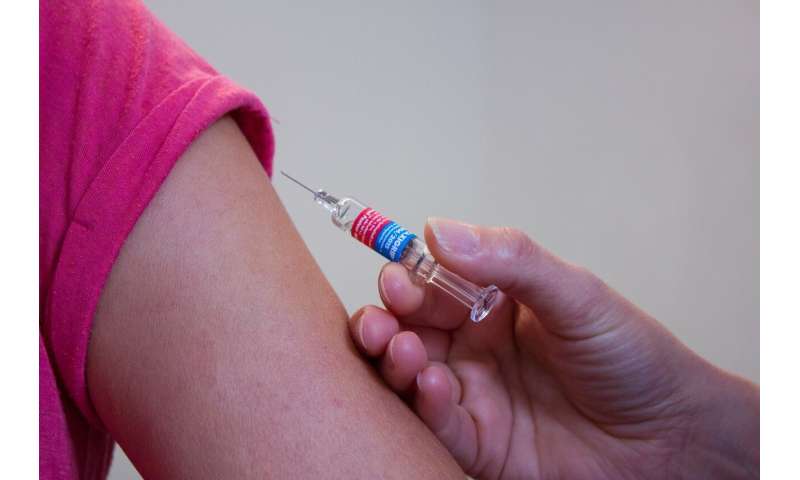
An experimental messenger RNA (mRNA)-based vaccine against severe acute respiratory syndrome coronavirus 2 (SARS-CoV-2) elicits protective immune responses in mice and non-human primates, researchers report on July 23rd in the journal Cell. Two injections of the vaccine were sufficient to induce robust immunity, completely preventing SARS-CoV-2 infection in mice.
“The robust protection observed in the present studies and the clear immune correlates of protection pave the path forward for future COVID-19 vaccine development in humans,” says senior study author Cheng-Feng Qin of the Beijing Institute of Microbiology and Epidemiology.
mRNA-based vaccines are attractive options for protecting against SARS-CoV-2 because they can be rapidly designed and manufactured at a large scale within weeks. Moreover, preclinical studies have demonstrated that mRNA-based vaccines induce potent and broadly protective immune responses against various pathogens with an acceptable safety profile.
In the Cell study, Qin and his colleagues developed a vaccine consisting of mRNA that encodes the receptor-binding domain (RBD) of the spike (S) protein, which is located on the surface of SARS-CoV-2. The vaccine, named ARCoV, is encapsulated in lipid nanoparticles, which improves delivery into tissues.
Targeting RBD rather than the entire S protein may represent a safer option, potentially triggering the production of fewer non-neutralizing antibodies. These antibodies could enhance viral entry into cells and viral replication through a process called antibody-dependent enhancement of infection, which has been previously reported for the related virus SARS-CoV—the causative agent of the SARS outbreak in 2002 to 2003.
The researchers injected ARCoV into the muscle tissue of 16 mice and provided a booster shot two weeks later. The vaccine elicited the production of high levels of neutralizing antibodies, which protect host cells by preventing the virus from interacting with them. These antibodies were cross-reactive, offering broad protection against three different strains of SARS-CoV-2. In addition, the vaccine increased the number of T cells in the spleen.
Mice that received two doses of ARCoV and were exposed to SARS-CoV-2 35 days later showed no signs of viral RNA in the lungs or trachea and no lung damage or inflammation. Results from 20 cynomolgus monkeys showed that two ARCoV doses induced a virus-specific T cell response and the production of neutralizing antibodies at levels that far exceed those seen in most recovered COVID-19 patients. Moreover, none of the vaccinated animals experienced adverse effects.
To assess the thermal stability of ARCoV, the researchers stored the vaccine at various temperatures for one, four, or seven days, injected it into mice, and visualized its tissue distribution. The results showed that the vaccine was effectively delivered to tissues, achieving the same high level of expression after being stored at room temperature for one week, without any signs of decreased activity. “A ready-to-use and thermostable vaccine like ARCoV is highly desirable to eliminate the need for cold-chain transportation,” Qin says.
Source: Read Full Article